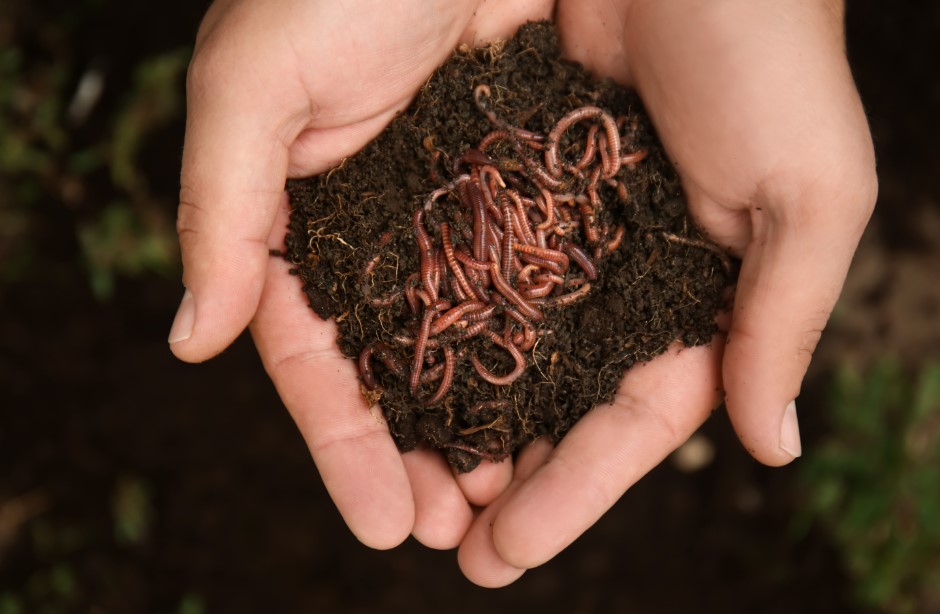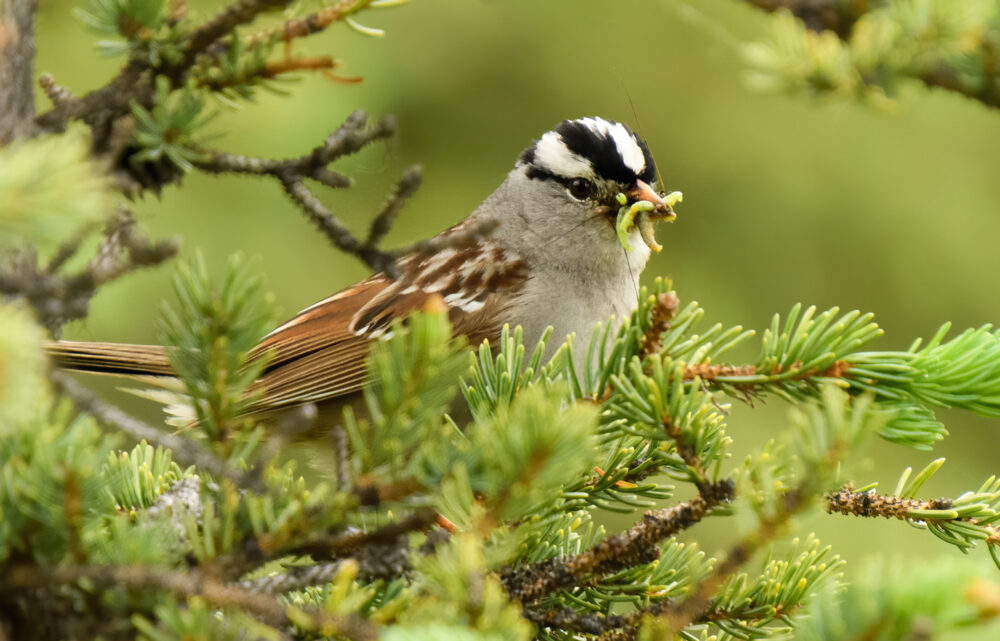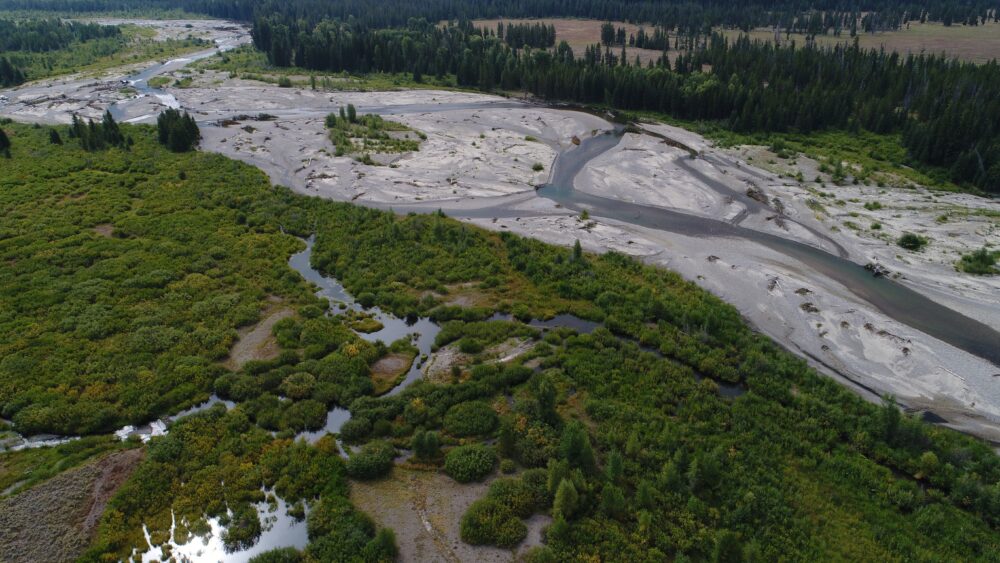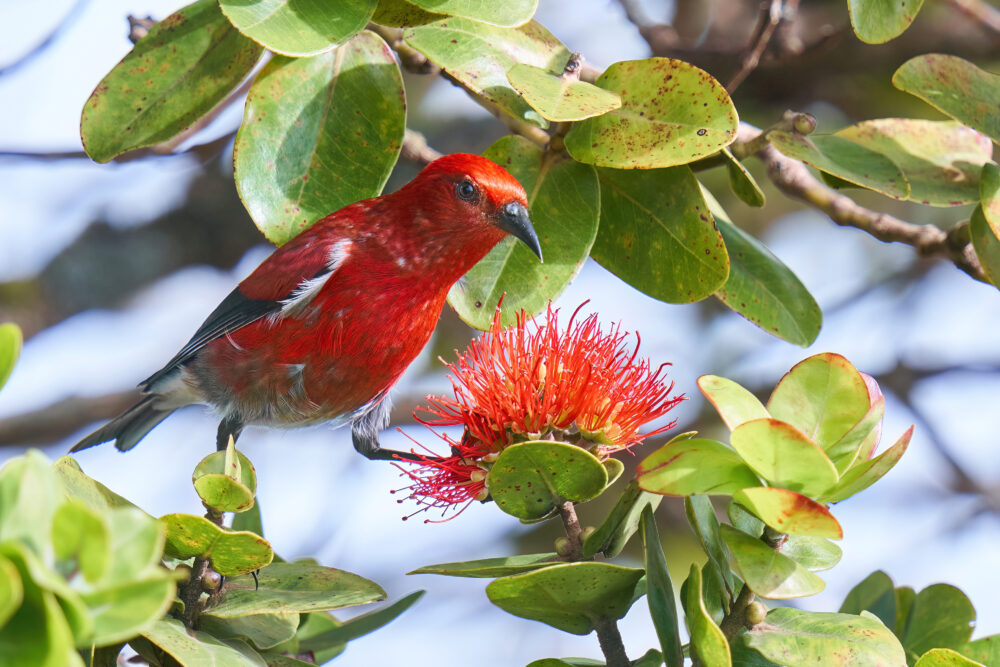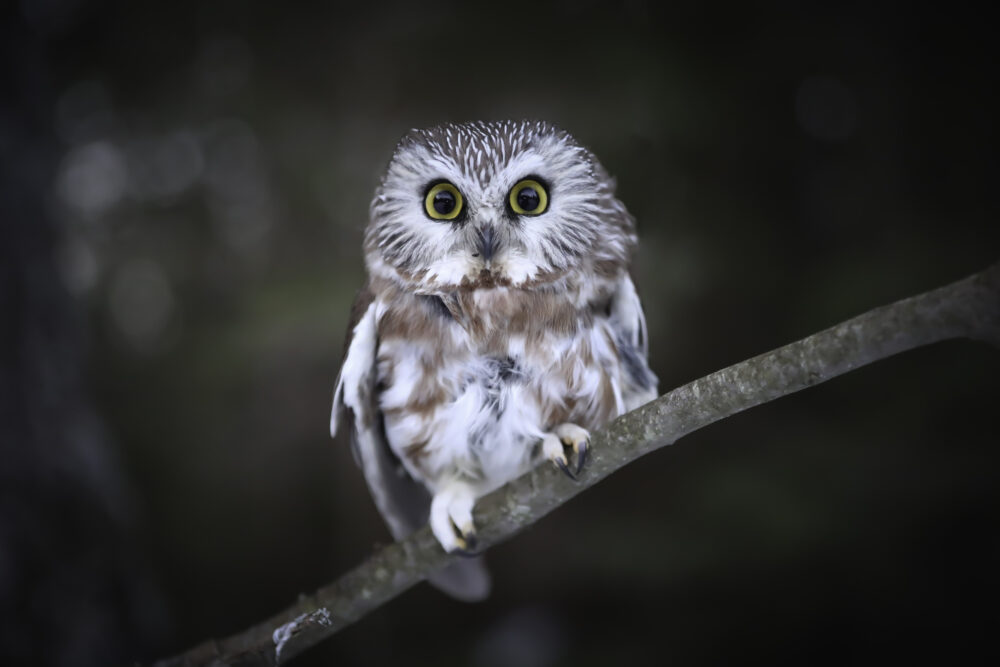We have much more to do and your continued support is needed now more than ever.
Weekly News Roundup: Mascot Madness, National Wildlife Week and More!
Spring Awakening
In late March or early April, a warm rain will fall and spotted salamanders will emerge from underground in the evening to return to vernal pools to breed. This phenomenon is known as “Big Night,” and it’s a great teaching moment for kids. Read this blog about how to introduce children to this spectacular nature phenomenon!

What’s happening at National Wildlife Federation this week?
National Wildlife Week, March 17-23, Celebrates “Wildlife and Water: From the Mountains to the Rivers to the Oceans”
March 14- National Wildlife Federation (NWF) will be helping children dive into the fun of the 76th annual National Wildlife Week, March 17-23. Families, youth organizations, and communities will be coming together to celebrate the many ways water helps sustain wildlife and enhance the environment.
With a theme of “Wildlife and Water: From the Mountains to the Rivers to the Oceans,” NWF will provide resources for families, schools, individuals and organizations to participate and will highlight the critical impact that water resources have on wildlife by showcasing ways wildlife are connected to water. These resources include a poster, educational webinars, lesson plans, activities, event-planning tips, and a calendar of events. Visit www.nwf.org/wildlifeweek to learn more.
Click here for a list of 10 ways to celebrate National Wildlife Week!
Proceedings from Second America’s Grasslands Conference Released
March 14- America’s iconic prairies continue to be one of the most threatened ecosystems in the world, but key opportunities exist to protect and restore them, particularly through partnerships between ranchers, conservationists, and researchers, according to the Proceedings of the 2nd Biennial Conference on the Conservation of America’s Grasslands, released today by the National Wildlife Federation and Kansas State University.
America’s Grasslands Conference: The Future of Grasslands in a Changing Landscape was held in Manhattan, KS from August 12-14, 2013. To work together to conserve American grasslands and the wildlife that depend on them, the conference brought together around 225 biologists, policy experts, ranchers, federal and state agency staff, graduate students and conservationists.
Find out more about America’s Grasslands Conference at http://www.nwf.org/grasslandsconference.
NWF Reveals Newly Uncovered Documents Showing Portland-Montreal Pipeline Already Past Retirement Date
March 13- According to the company that owns it, the 64-year-old pipeline that currently transports crude oil from Portland, Maine, to Montreal has already passed its projected retirement date, documents recently discovered by the National Wildlife Federation show. The Exxon-owned Portland Pipe Line Corporation (PPLC) seeks to reverse the aging pipeline to transport heavy, corrosive, toxic tar sands oil, one of the dirtiest, costliest, and most climate-disrupting fuels in the world.
“This is yet another reason any tar sands project in Northern New England is far too risky,” said Jim Murphy, senior counsel at the National Wildlife Federation’s Northeast Regional Center. “As we saw with the tragic tar sands oil disaster in Mayflower, Arkansas, last year, these old pipelines can and will fail. It would be utterly irresponsible to try to pump impossible-to-clean-up tar sands through a pipe the company itself admits is past its retirement date and that crosses some of New England’s most sensitive wildlife habitat.”
Download the NWF Fact Sheet: Why Tar Sands are Bad for Maine
Take Action! Protect Northeast Moose from Dirty Oil.
Mascot Madness: How Climate Change Threatens School Spirit
March 11- With the annual NCAA college basketball tournaments set to begin, a new National Wildlife Federation report details how the climate crisis is hurting the real-life species that are mascots for many of America’s college athletic programs. Climate change is the most serious environmental threat today to many animals and plants and urgent action is needed at all levels, according to Mascot Madness: How Climate Change is Hurting School Spirit.
We have a new version of ‘March Madness’: Extreme weather fueled by climate change, deeper droughts, and intensifying wildfires,” said Dr. Doug Inkley, senior scientist with the National Wildlife Federation and lead author of Mascot Madness. “From wolverines to gators, species that have spent countless centuries adapting a home court advantage are now watching the rules of the game changed before their eyes by industrial carbon pollution. If we’re going to turn climate change into a Cinderella story, we need to act now.”
Read the report: NWF.org/Mascots
Take Action! Speak up for polar bears by showing the EPA your support for strong limits on pollution from coal-fired power plants!
NYC iSchool Awarded Eco-Schools USA Green Flag for Exceptional ‘Green’ Achievement
March 10- The NYC iSchool was recognized with the Green Flag by National Wildlife Federation’s Eco-Schools USA program for conserving natural resources and integrating environmental education into the curriculum. The iSchool is the third school in New York City, and only the 22nd in the country, to achieve “Green Flag” status.
“We at National Wildlife Federation and Eco-Schools USA are proud of the example set by the students and teachers at the NYC iSchool,” said Emily Fano, New York City outreach manager for NWF’s Eco-Schools USA program. “The Green Flag award places the iSchool among an elite group of schools across the country that are improving their schools by reducing energy costs and waste, greening school grounds, and nurturing student-scientists through hands-on learning.”
Learn More About Eco-Schools USA : Green your school inside and out with Eco-Schools USA curriculum!
NWF in the news:
New York Times: E.P.A.’s Proposed Rules on Water Worry Farmers
Jan Goldman-Carter, a lawyer who works with the National Wildlife Federation on water issues, said the proposals outlined regulatory exemptions that have been in place for decades for plowing, planting, harvesting and maintaining drainage ditches.
Associated Press: Environmentalist say Portland pipeline is aging
Based on filings in a tax dispute in New Hampshire, the National Wildlife Federation said an 18-inch pipeline built in 1950 is four years beyond its anticipated retirement age.
Weather Channel: David Mizejewski on Wake Up With Al
David Mizejewski brings on real-life animal mascots and discusses how their lives are being impacted by climate change.
Huffington Post: Climate Change Could Affect Your Favorite College Mascot, So Root For Them Now
“We have a new version of ‘March Madness’: Extreme weather fueled by climate change, deeper droughts, and intensifying wildfires,” says Doug Inkley, National Wildlife Federation senior scientist and lead author of “Mascot Madness”.
US News and World Report: Donna Edwards Warns Climate Change Will Kill Off College Mascots
“I want to encourage you to look at the National Wildlife Federation report, match it up with those brackets, see those species that are in danger because of our changing climate,” she said, noting that she would be taking her own advice. “I can’t wait to dig through the report and actually compare the dangers to those mascots to my brackets come Sunday.”
UPI.com: National Wildlife Federation: Montreal-to-Maine pipeline stale
The shelf life of a pipeline that critics worry will spoil Maine’s environment with Canadian crude oil has expired, the National Wildlife Federation says.
Roanoke Times: Young Virginia outdoor writer winning awards, and for good reason
Reilly earned the chance by winning an award in another writing contest, this one a national competition sponsored by the Sportsmen for Responsible Energy Development coalition.
Seattle Post-Intelligencer: Teen using bats to fight West Nile virus
According to the National Wildlife Federation, one bat can capture 500 to 1,000 mosquitoes in an hour.
Charlotte Magazine: Get Outside by Exploring a Public Garden
If you’re looking for a journey outside the city, the Teaching Garden at Union County Agricultural Center in Monroe showcases plants and trees that grow well in the local area. The garden is also designated as a Certified Wildlife Habitat by the National Wildlife Federation.


















